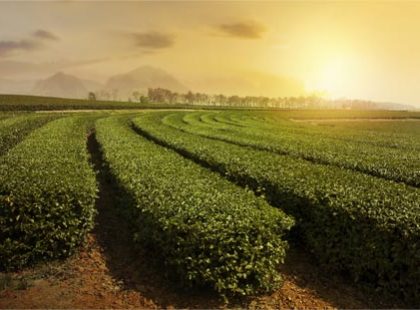Agriculture sciences seek to feed the world’s population while preventing biosafety problems that may affect human health and the environment. This requires promoting good management of natural resources and respect for the environment, and increasingly concern for the psychological wellbeing of all concerned in the food production and consumption system.
Agricultural science is a broad multidisciplinary field of biology that encompasses the parts of exact, natural, economic and social sciences that are used in the practice and understanding of agriculture.

This requires promoting good management of natural resources and respect for the environment, and increasingly concern for the psychological wellbeing of all concerned in the food production.
- Production techniques (e.g., irrigation management, recommended nitrogen inputs)
- Improving agricultural productivity in terms of quantity and quality.
- Minimizing the effects of pests (weeds, insects, pathogens, nematodes) on animal production
or crop systems.
Crops & Agronomy Research
International Collaboration accounts for the articles that have been produced reserchers.
The chart shows the ratio of a journal’s documents signed by researchers from more than one country; that is including more than one country address.
International Collaboration accounts for the articles that have been produced by researchers from several countries. The chart shows the ratio of a journal’s documents signed by researchers from more than one country.

Soil science is the study of soil as a natural resource on the surface of the Earth including soil formation, classification and mapping; physical, chemical, biological, and fertility properties of soils; and these properties in relation to the use and management of soils. physical, chemical, biological, and fertility properties of soils.
Assessment of pathogens in composting systems; microbial diversity, and relationships between microbial diversity, environmental characteristics, and ecosystem processes; methods to assess soil biological quality, remediate degraded soils, and improve soil management practices.
Soil science is the study of soil as a natural resource on the surface of the Earth including soil formation, classification and mapping; physical, chemical, biological, and fertility properties of soils; and these properties in relation to the use and management of soils. physical, chemical, biological, and fertility properties of soils.
Assessment of pathogens in composting systems; microbial diversity, and relationships between microbial diversity, environmental characteristics, and ecosystem processes; methods to assess soil biological quality, remediate degraded soils, and improve soil management practices.
Soil science is the study of soil as a natural resource on the surface of the Earth including soil formation, classification and mapping; physical, chemical, biological, and fertility properties of soils; and these properties in relation to the use and management of soils. physical, chemical, biological, and fertility properties of soils.
Assessment of pathogens in composting systems; microbial diversity, and relationships between microbial diversity, environmental characteristics, and ecosystem processes; methods to assess soil biological quality, remediate degraded soils, and improve soil management practices.

